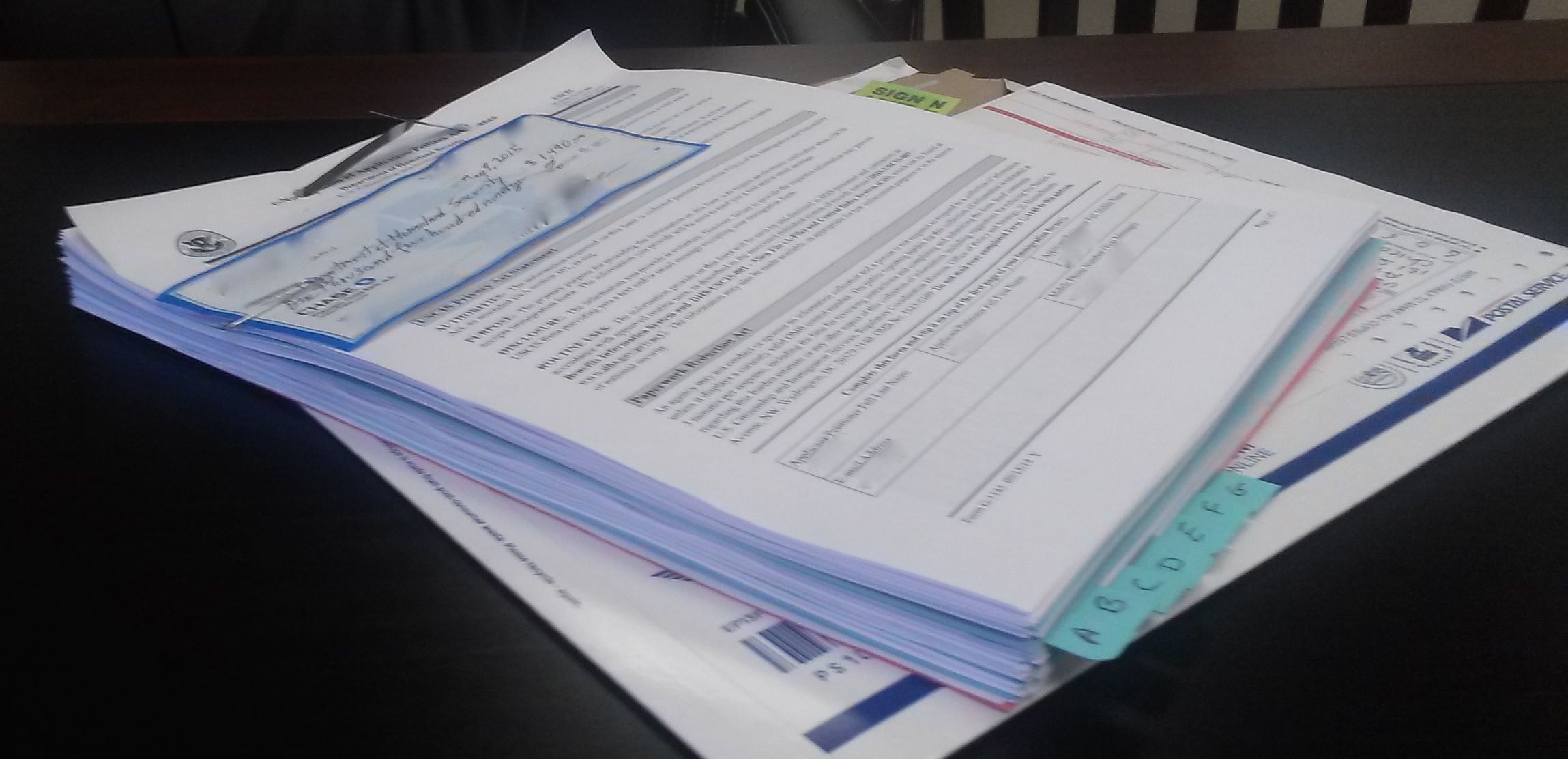The Timeline
Every USCIS office has a different timeline, depending on how overworked they are.
However, some things are predictable. You will get a biometrics appointment about a month after you file.
You will get approval for advance parole and your employment card within 60-90 days. But if there is an RFE - a request for evidence - then
everything stops until they get your response. In the Bay Area, green card applications usually are processed through to interview in 4-5 months.
The Cost
You have to write a check to the US Department of Homeland Security for $1760. This includes the cost of the I-130. All other forms are included in the price.
If you previously filed an I-129F fiance visa, then you don't file an I-130 and don't pay the $535 for that, so your fee is $1225. You will also
have to pay the civil surgeon for the medical - between $200 and $400. If you are working with me, then you know that your lawyer fee is $530.
The Employment Card
The employment card is valid for a year and is issued within 90 days of your application - unless delayed by an RFE. It is there to protect
you against delays by USCIS because of a full interview calendar. Often you get your interview and your green card almost at the same time
as the employment card arrives. If you get approved advance parole, you get a combo-card, allowing you to work AND travel.
Interview Questions
You cannot predict interview questions in advance. But you know that the officer is looking at whether there are any hidden inadmissibility
issues, and whether there is any suggestion of marriage fraud. I give you a mock interview close to the time, so you get comfortable with
talking about yourself in an adversarial (but not hostile) situation. I don't attend interviews unless there are sensitive issues. I believe
that people do better as a couple without someone else hovering in the background.
When should I marry?
You marry when you want to marry. You are not marrying for an immigration benefit, but because you want to spend your life together.
If your fiance is abroad, you might want to consider a fiance visa and only marry once they arrive in the US. And if your intended comes
into the US on another visa, you need to make sure there is no suggestion of misrepresentation when they are admitted. That they came in to marry.
If in doubt, talk to a lawyer before you get married.
Consular Processing
Consular Processing is a slower process, but apart from possible time apart it is no more difficult than adjusting your status. In some
ways it is easier. You work with USCIS to approve the I-130 petition, and then with the National Visa Center at the State Department, and
finally the US Embassy in the home country.
The K-1 Fiance Visa
The fiance visa is useful if it is processed quickly. It is handled at the California and the Texas service center. You don't get to choose
which, but CSC applications seem to be handled very quickly and TSC ones take a long time.
The K-3 Visa
These days, K-3 approval isn't fast enough to make it useful. You file the K-3 with your I-130, and if by some miracle it
gets approved in a couple of months, then it can work like the K-1 and your spouse can come here quickly and adjust status.
If it is approved at about the same time as the I-130 is approved, you are often better completing consular processing and
coming into the country with a green card (and permission to work) rather than coming in to wait for an adjustment process
before you can contribute to the family income.
Advance Parole
If you leave the country while an adjustment application is pending, you give up the application. Unless you leave after being
approved for advance parole. However this only preserves the application, so if you have any other red flags that might make
it hard for you to return, it is best to stay here whatever the emergency back home.
Conditional Green Card
Recently married couples can expect a 2 year green card in the first instance. In the three months before the two year period ends
you file for the conditions to be lifted. So you should keep gathering evidence about the bona-fides of the marriage. Remember they
are not judging how good your marriage is - just whether it was a fraud when you originally applied.
Entered Without Inspection (EWI)
EWI need not apply. If you were not admitted, you cannot adjust status. You file the I-130 and then try to get an I-601A stateside waiver
of your unlawful entry. And once that is approved, you have to return home for an interview at the embassy. If you have deferred action - e.g. DACA
- you now have the opportunity to be "admitted" so you can adjust, by making an approved advance parole short trip home. Your safe return
makes you eligible to adjust status.
Overstayed/Worked without authorization
For everyone except the immediate relative of a US citizen, overstaying a visa or working without authorization makes you ineligible for
adjusting your status. If your spouse is a citizen, they are not going to penalize a voter for this and make their marriage difficult.
